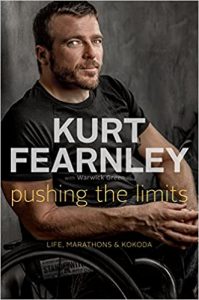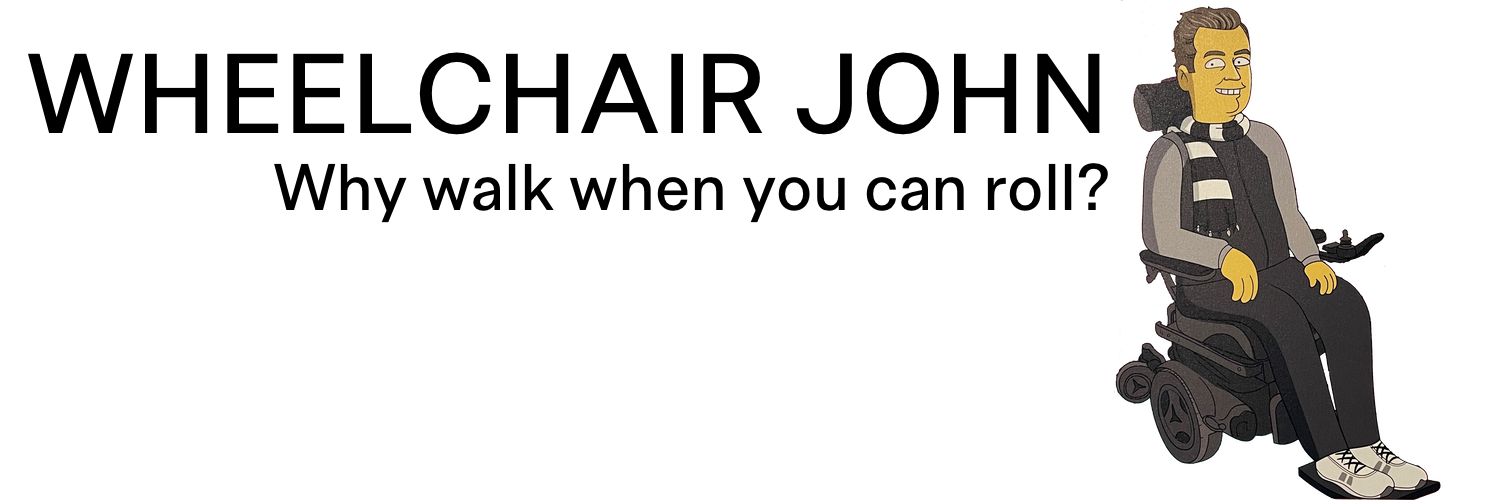Pushing the Limits by Kurt Fearnley – a book summary
I’ve read a few books about living with a disability, and some of my blogs will share a summary of each book. If you like the summary, please buy the book and read it. This review is for Pushing the Limits by Kurt Fearnley.

Kindle edition on Amazon.com.au
-
People have this idea that struggling is a bad thing, but struggling is brilliant. If you see someone struggle and overcome it, it is infectious.
-
I call my day chair “my legs” but it feels more like my life.
-
Canadian ice hockey legend Wayne Gretsky “you miss 100 percent of the shots you don’t take”
-
All I could see was me. I didn’t see any disability. I just wanted to get him home. I’m the sort of person that when there’s something wrong in the family I just want to get them home.
-
People might come up and ask “what’s wrong with you?” It would always confuse me, because nothing was wrong.
-
It continues to baffle me, the low depth of expectation that some people have when it comes to disability.
-
The roots of the Paralympic competition lie in the movement to assist soldiers and civilians who were injured during World War II.
-
The Rome games were not without their problems. Remarkably, for an event conducted exclusively for wheelchair competitors, the athlete accommodation consisted entirely of building on stilts, meaning the athletes had to be carried up and down stairs by Italian soldiers.
-
But when it all goes wrong, when it all goes pear-shaped, that’s when you learn.
-
There is an Abraham Lincoln quote about preparation that sums up my development during that period “Give me six hours to chop down a tree and I will spend the first four sharpening the axe”
-
I will never criticise an athlete who shows disappointment at not winning. Disappointment cannot be made into a dirty word. You need to be allowed to feel disappointment so that you can be resilient enough to absorb it, learn from it and build on it.
-
It was sheer dumb luck to be born in a nation that was relatively wealthy and well resourced.
-
But I thought maybe now, on some level, it would register with a few people and they would understand the deep connection that a person has with their wheelchair and the independence it brings. Only disability would be singled out like this. A private company would not openly compromise a person’s sense of self on the basis of face, gender or sexuality. but disability seemed to be different, as if we were always expected to submit to such indignities. What really had me fuming was the attitude of the airline, that they would regard a person’s wheelchair as luggage and not understand its importance, I refer to my wheelchair as my legs.
-
The US has legislation, the Air Carrier Access Act, which prevents airlines from discriminating against passengers with a disability.
-
The act prevents placing a limit on the number of wheelchair passengers who can board a flight. They are the types of initiatives that need to be introduced in Australia.
-
All I wanted was for Australian airlines to commit to ending inappropriate and undignified treatment of people with disabilities.
-
Forty per cent of claims to the Australian Human Rights commission are related to disability discrimination, yet for some reason, the ‘whinged’ perception remains. When you have limited control of movement, and what you do have is then threatened, why wouldn’t you fight for your rights ?
-
I struggle with people who are patronising. At least once a week I have someone marvel at the fact that I can open a door. “Wow, you’ve really got the hang of that.” I mean, it’s opening a door.
-
Countless times over the years people have looked at the wheelchair and asked me “What happened to you”. When I was younger I used to muck around and tell them it was a shark attack or a war wound, or convince Americans kangaroos were capable of maiming people. Now if people ask what’s wrong with me I just tell them “nothing, having a great day”
-
Sometimes people can just stay curious. Why is it my job to satisfy your curiosity? You don’t have to know everything. I wouldn’t just start grilling other people about their appearance. “Why have you got a big gut?”. “When did you lose all of your hair?”
-
Kids asking about wheelchairs I can understand. I welcome that. I don’t like it when their mum or dad shoos them off with an attitude of ‘Don’t stare. Don’t look at the freak’. But children are usually open minded and unguarded about disability that a conversation with them is an overwhelmingly positive experience.
-
Kids will ask why I am in a wheelchair and when I explain that my legs don’t work too well and that my chair allows me to go as fast as anyone else, it simply makes sense to them and they get it. They might even think that the wheelchair is pretty cool.
-
Life is not done, life is just different.
-
Support should be provided on the basis of need, not dictated by how your disability is acquired. A person who ended up in a wheelchair because of a car accident, for example, might find that road insurance would help fund and support living a life within the community. Others, with a disability from birth, would not be as comprehensively supported.
-
Australia is ranked last among OECD countries in terms of people with a disability living at or below the poverty line, and in the bottom third for employment rates.
-
Disability is complex, and difficult to categorise. There may be two people with exactly the same disability but they may be on opposite ends of the spectrum when it comes to their capacity to handle that disability.
-
We are all different and we all deal with things how we deal with them. But people need to stop regarding disability as a weakness, because that attitude can often be the most disabling aspect of a disability.
-
Being an equal member of society with equal opportunities should just be expected. If people have disabilities that prevent them from taking those opportunities, then we offer as much help and as much assistance as we can to help them live in the community at the level that is comfortable for them.
-
That should be our standard.
-
You always have the ability within to live your life, pushing the limits.
Please read the book Pushing the Limits by Kurt Fearnley. Click here for information about the blog WheelchairJohn. More information about me is found at johnduthie.com
